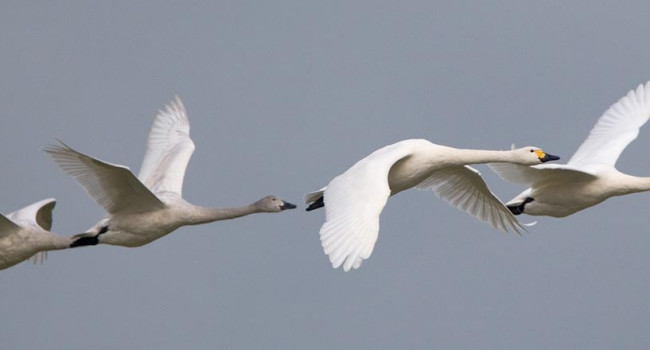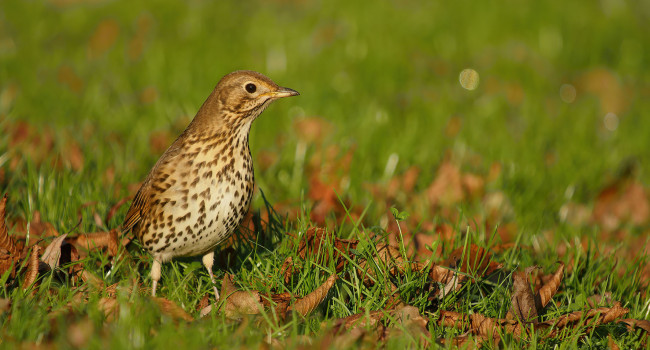Resources
Photograph by John Harding
About thrushes...
The following links provide background to the study species, including their identification, their migrations, the UK population trends for species that breed here, and the distribution and phenology of breeding and wintering thrushes in Britain and Ireland.
General introduction
Read a brief introduction to the main study species for the Winter Thrushes Survey.
For more identification tips, watch our BTO Bird ID videos on Night singers (including Blackbird and Song Thrush), Ring Ouzel / Blackbird, Song Thrush / Mistle Thrush and our latest on Redwing / Fieldfare.
Migrations
Our study species have widely differing world distributions and patterns of seasonal migration. Read a summary of migration and movements for the six common thrushes, Waxwing and Starling.
Further information
- BTO's latest BirdTrends report – trends in numbers and demography for UK breeding birds
Ring Ouzel Blackbird Song Thrush Mistle Thrush
- BTO's BirdFacts pages – in-depth information and comprehensive links to further reading
Ring Ouzel Blackbird Fieldfare Song Thrush Redwing Mistle Thrush
- Ringing results – summaries of all ring recoveries
Ring Ouzel Blackbird Fieldfare Song Thrush Redwing Mistle Thrush
About berries...
All the thrushes consume berries but we need to more about which sorts of berries are important food sources, and how this may vary between the thrush species and between UK regions. We suspect there will be behavioural changes through the winter as berries gradually become depleted.
The wider countryside provides berries mainly from native trees and bushes in woodlands and hedgerows.
Berry identification is therefore important to the Winter Thrushes Survey.
Berry Identification Guide
Forms for download
- (including lists of available reporting categories)
Winter Thrushes Survey Field Sheet
Winter Thrushes Survey Field Sheet (PDF, 516.76 KB)
Observers will need to carry printouts of these forms, and one of their route map, on each recording visit.
Video tutorials for contributing to WTS online
Please see our video tutorials if you require help in using the survey's online pages.







Share this page